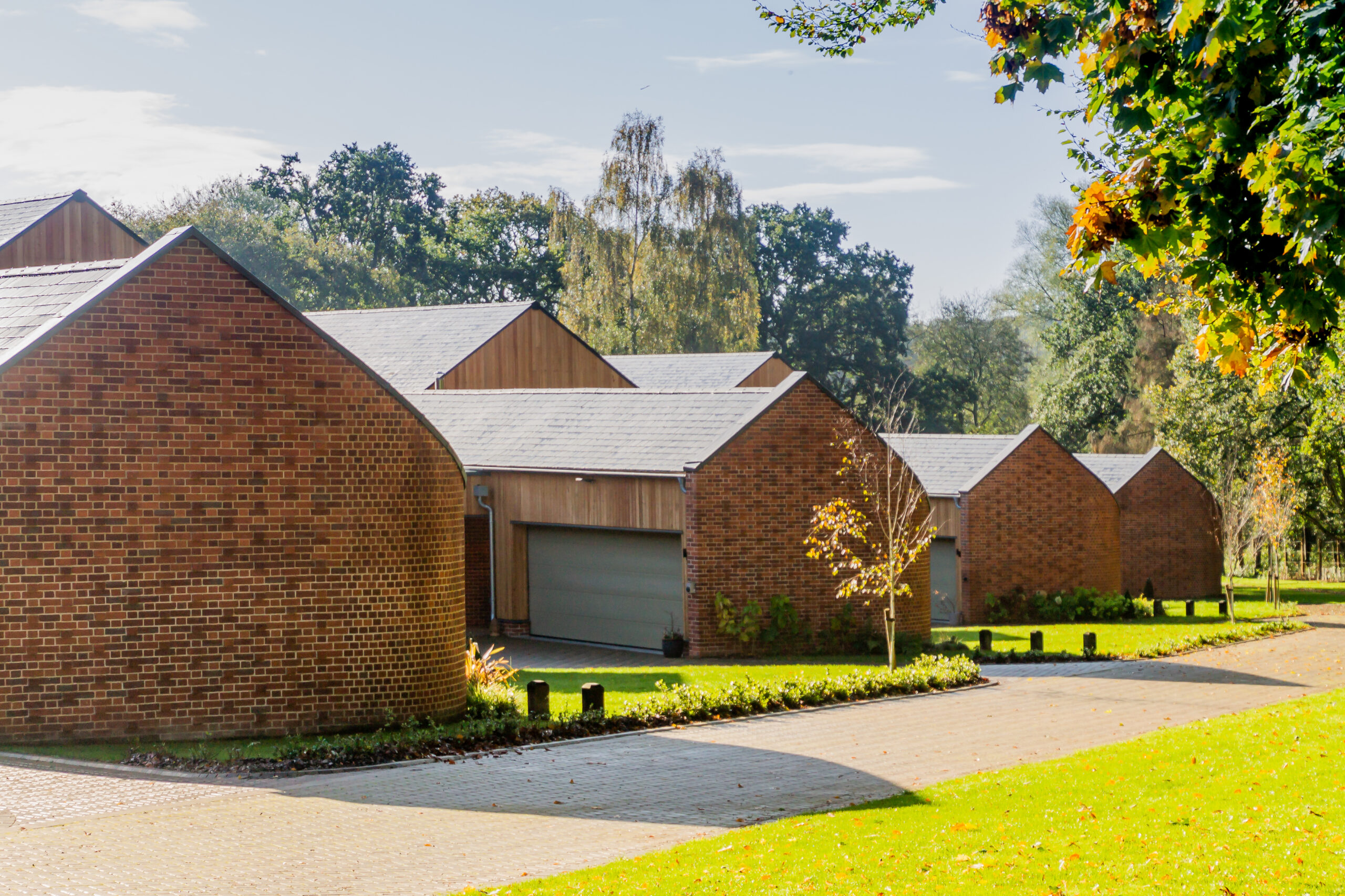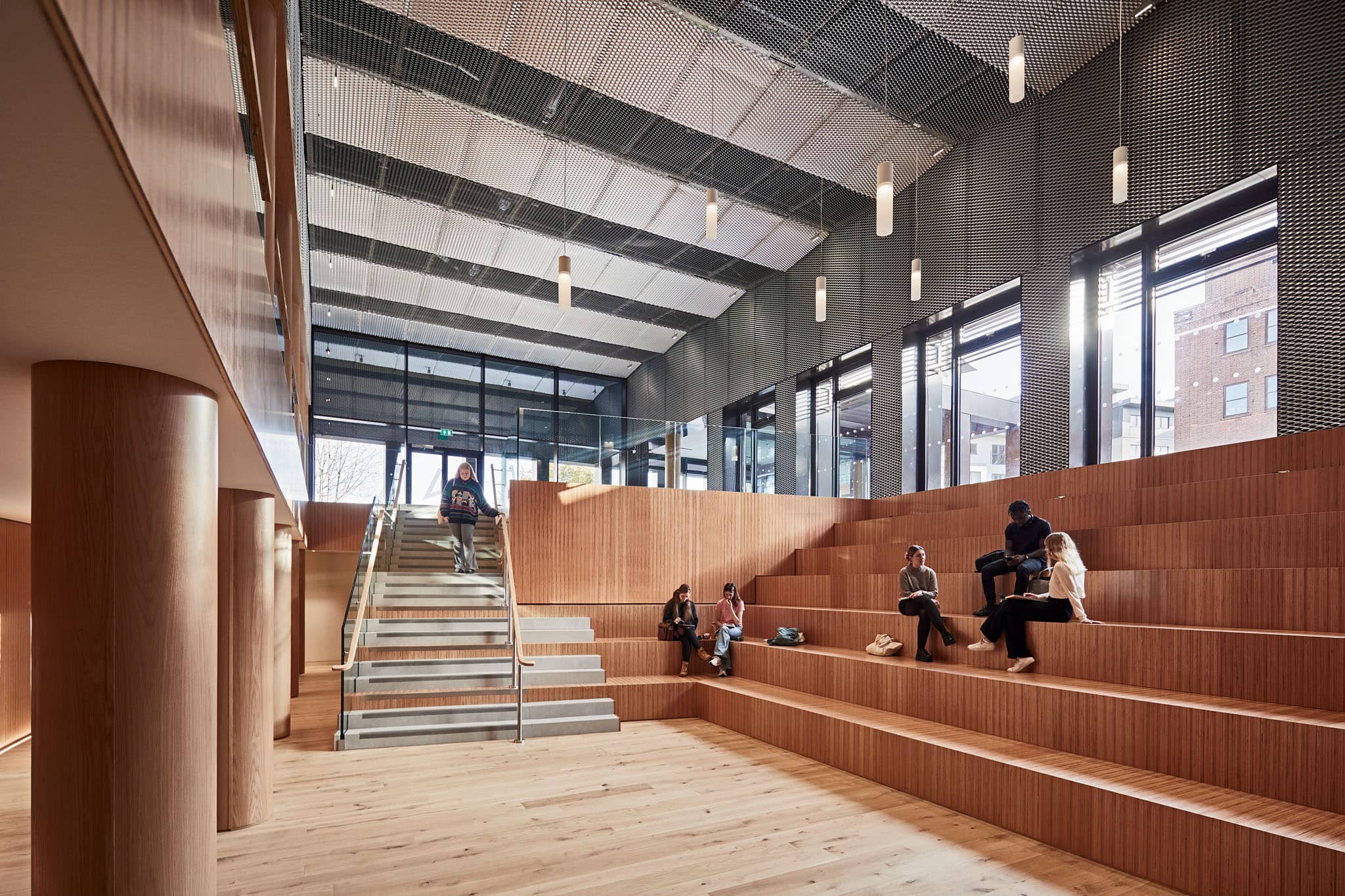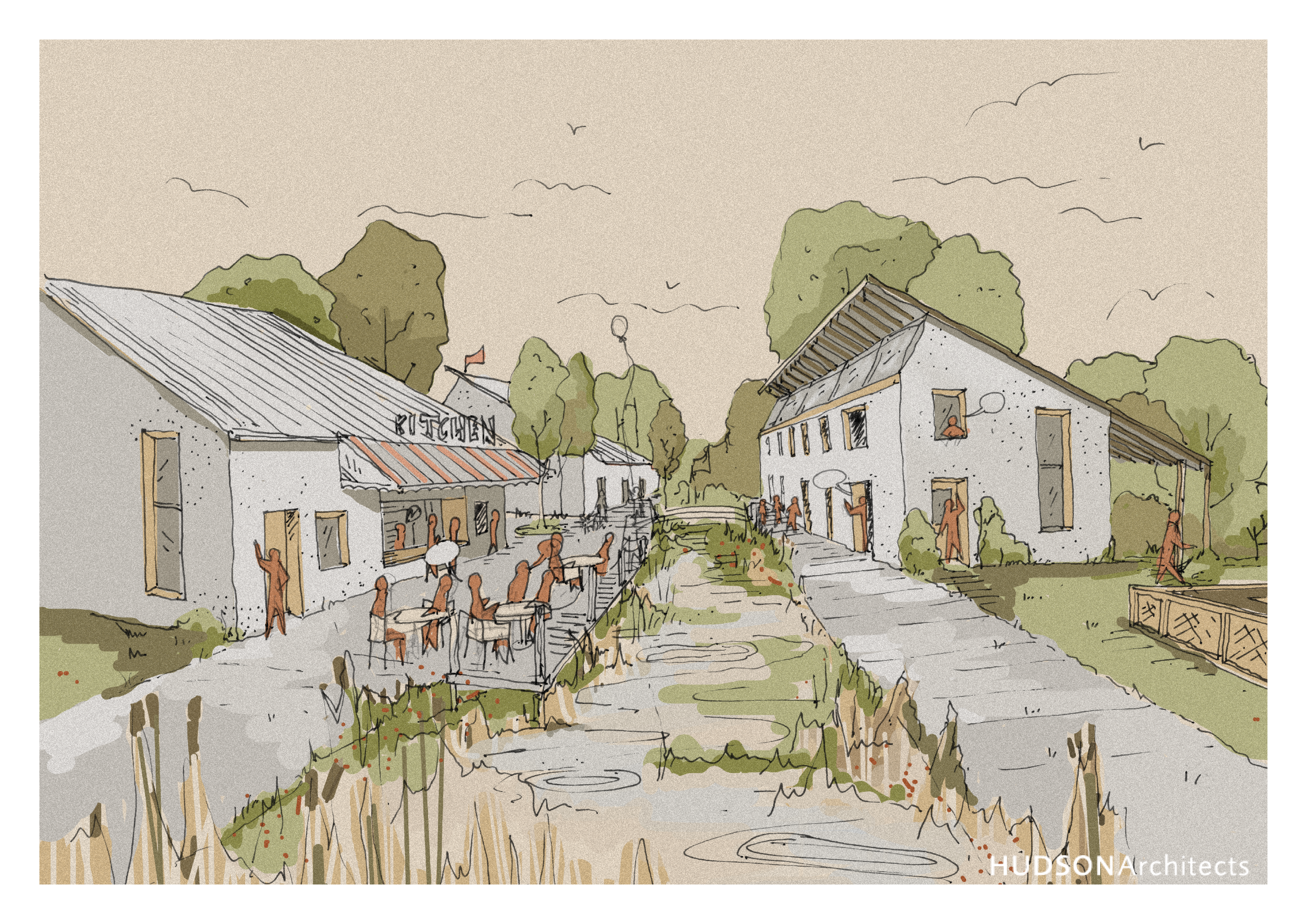As the FibreBroads project nears conclusion, Katey and Anthony attended the FibreBroads Cultivating Sustainable Futures Symposium, hosted by Norwich University of the Arts and the Broads Authority. The event brought together academics, practitioners, and industry experts to explore the use of sustainable bio-based materials within mainstream construction as well as other ancillary industries.
Morning Sessions: Insights into Sustainable Innovation
The day began with a series of insightful presentations.
Andrea Kelly (Broads Authority) shared key findings from the FibreBroads research project, focusing on water management and demonstrating wetland farming (paludiculture) in the Broads. Richard S.Hurding (Zelfo Technology) introduced Zelfo’s specialist technology, designed to help companies develop sustainable solutions for the built environment while supporting circular waste streams across various industries.
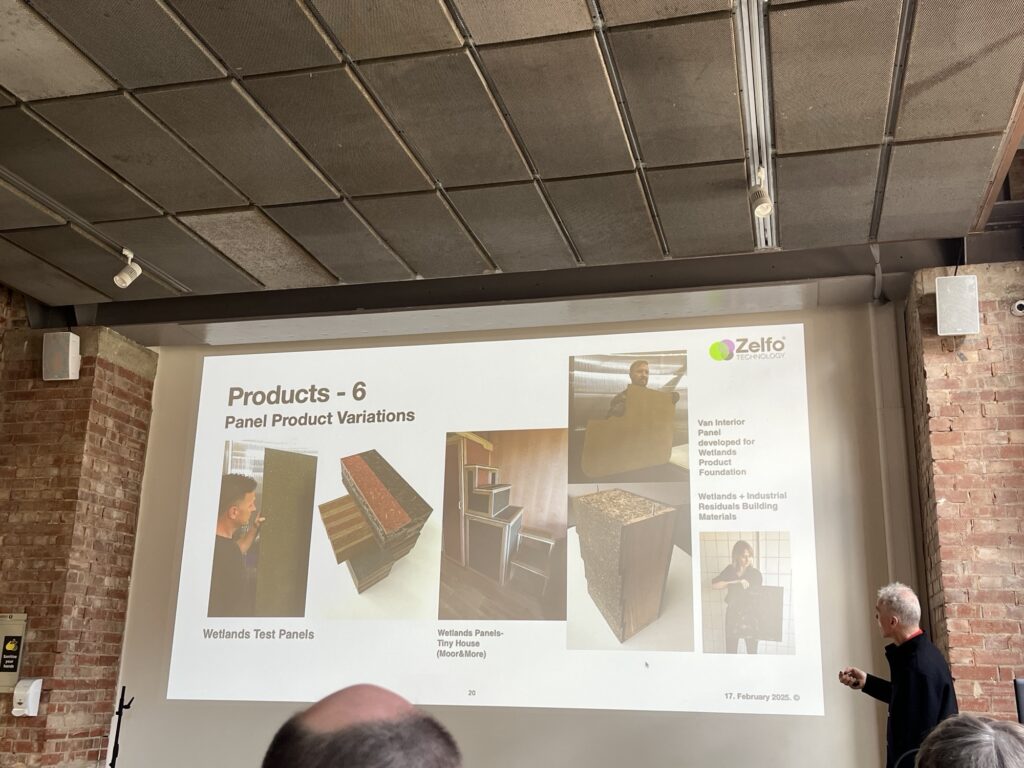
Georgemma Hunt (UEL) presented research from the Sustainability Research Institute, highlighting two innovative case studies: Sugarcrete® a biobased construction material made from sugarcane waste, and her own work on novel building materials made using Common Bulrush (Typha latifolia). Both materials hold significant potential for promoting wetter farming in the UK. Neloufar Taheri (Ponda) then introduced the Ponda BioPuff® project, which transforms Typha fluffy seed heads into a plant-based, feather-free insulation material.
Exploring the Exhibition: Creativity in Action
During the lunch break, Katey and Anthony explored an inspiring exhibition by Norwich University of the Arts students. The showcase featured experimental applications of Paludi-fibre – a sustainable material derived from wetland vegetation – in contemporary architecture. Students demonstrated their technical creativity through bricks, tiles, panels, and wall constructions crafted from an inventive mix of Typha, reed fibre, eggshells, coffee grounds, mussel shells, and textile waste.
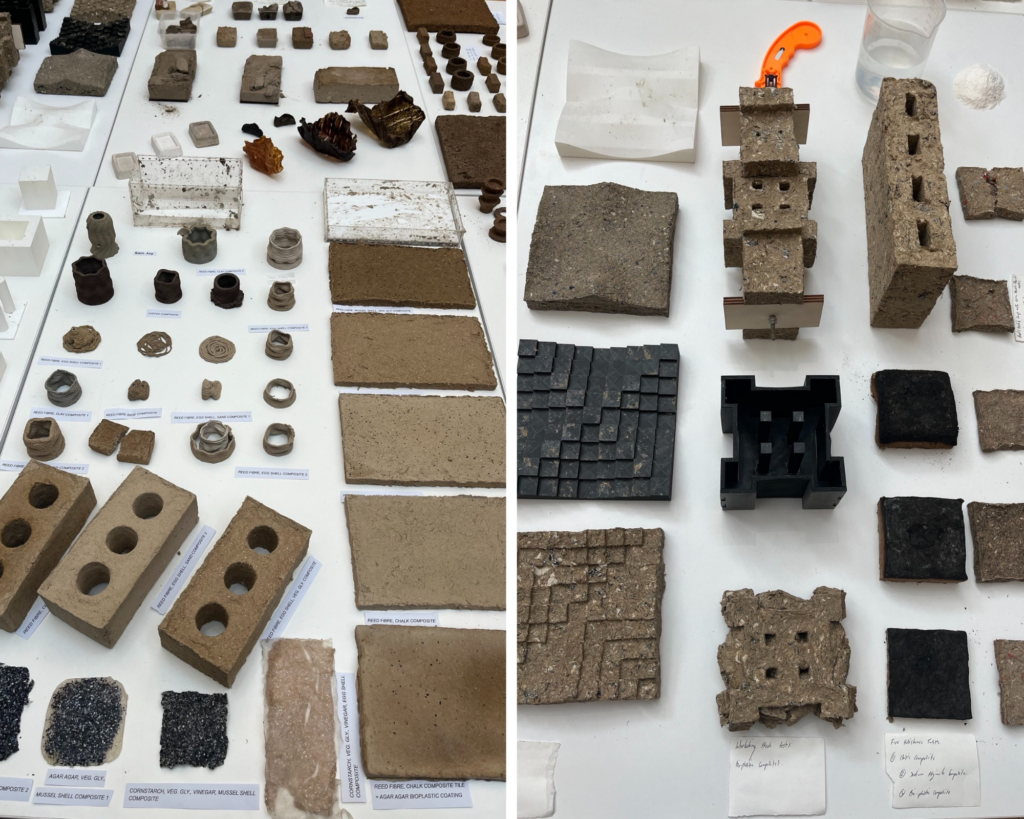
Afternoon Discussions: Scaling Biobased Materials
The afternoon kicked off with William Hailiang Chen (Norwich University of the Arts), who provided an overview of March students’ research into Paludiculture applications; from traditional insulation materials to flowerpots and artificial nesting habitats for wildlife conservation. The talk from Jungyuan Meng and Guillem Perutxet Olesti (UCL) focused on addressing the challenges of scaling biomaterials for the built environment. In collaboration with the Robotic Team and B-made, they have developed autonomous systems to enhance large-scale adoption of biobased materials.
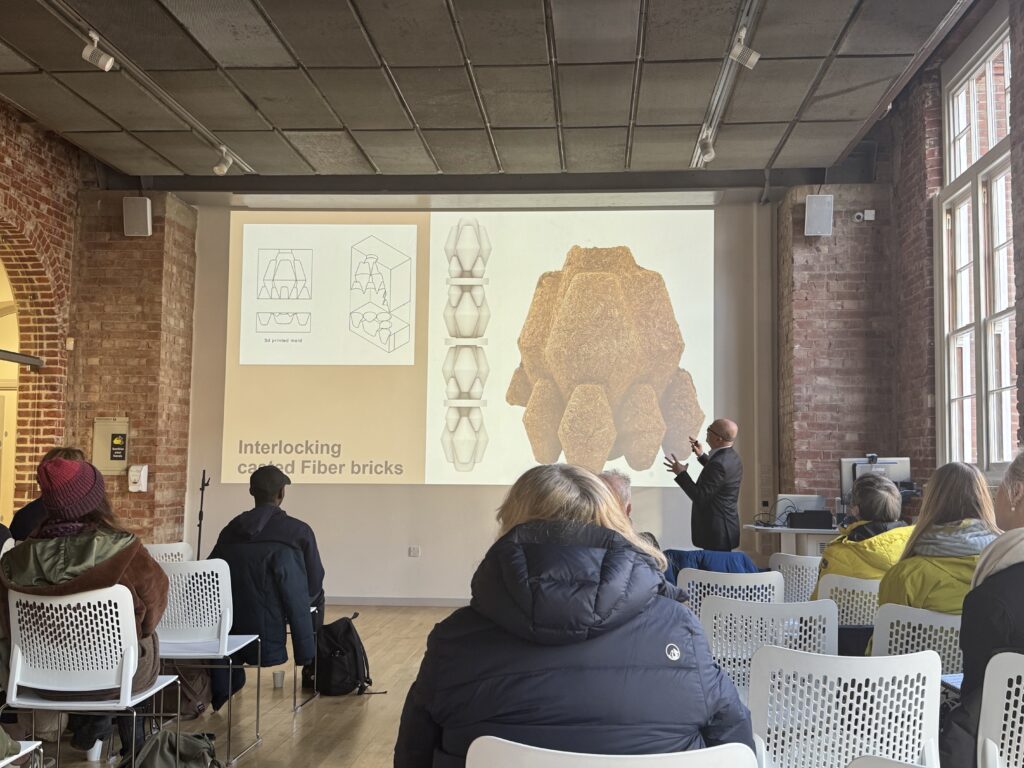
Finally, Dr. Monika Brandic Lipinska (Newcastle University) offered a thought-provoking perspective on the use of bio-based materials in space. Her talk highlighted how advancements in space challenge us to rethink sustainable material usage here on Earth.
Final Thoughts
As the day came to a close, it was encouraging to see that the FibreBroads project and symposium had initiated critical conversations about the future of sustainable materials. From paludiculture to biobased insulation, the event showcased a diverse range of innovative solutions that have the potential to revolutionise the built environment and design industries in order to address the climate crisis. The shared passion of academics, industry experts, and students highlight the importance of continued collaboration and creativity in shaping a more sustainable future. As FibreBroads moves toward its next phase, the insights gained from this symposium will continue to inspire action and innovation in the future.
